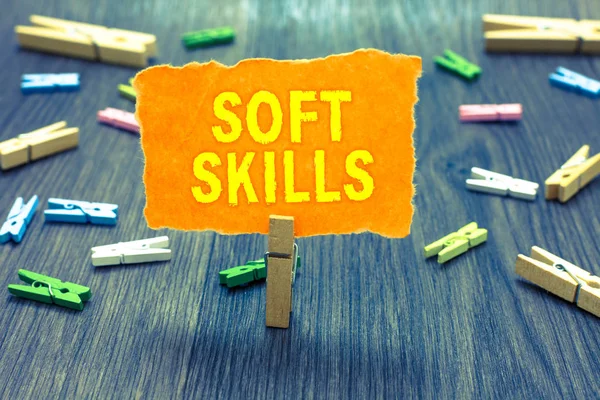Soft skills are personal qualities and interpersonal abilities that help you stand out in school and life. They are important for students to have and lead to better grades and academic performance. They also help you get hired after graduating. To become a well-rounded person, you must build strong soft skills.
This article discusses how to develop soft skills as a student.
How to Develop Soft Skills for Students (10 Proven Ways)
1. Join clubs or organizations related to your interests
There are many proven ways to improve your soft skills. One excellent way is to join clubs or organizations related to your interests. Joining a club helps you build teamwork and communication skills. Working with others forces you to practice goal-sharing, leadership, and collaboration. This is a fun way to get out of your comfort zone and acquire the needed skills.
2. Engage in sports teams or group projects
Sports and group projects are excellent ways to build soft skills. Sports teach perseverance, discipline, and how to handle constructive feedback. Group projects, on the other hand, teach negotiation, conflict management, and teamwork. Both work in a similar way and help you develop invaluable people skills. Do you have a sports team in your school? Join them today to learn how to negotiate and collaborate.
See Also: Importance Of Soft Skills For Students
3. Volunteer for leadership positions in school projects or clubs
Your role as a leader is to manage and motivate others. Volunteering to lead in school projects and clubs helps you acquire this skill. As the project or group leader, you’ll learn how to make decisions, practice delegating, solve problems, and establish communication across team members. Volunteering for leadership positions provides great learning opportunities.

4. Organize events or initiatives within the school or community
Planning and organizing events requires strong soft skills. The good thing about organizing events is that it helps you master time management, teamwork, and communication. Because you’ll be responsible for organizing activities, you’ll need to promote the event, assign tasks to participants, and ensure everyone delivers on their jobs. Taking this initiative is a form of leadership and helps you build valuable real-world experience.
5. Participate in public speaking events or debates
Communication and critical thinking are soft skills you can develop from public speaking and debates. Debates require you to organize your thoughts clearly and present them confidently in front of an audience. Public speaking helps you practice vocal projection, body language, and thinking on your feet. Combining these events can improve your research abilities, help you build poise under pressure, and enhance your ability to conquer stage fear.
6. Engage in group discussions or debates
Participating in group discussions or debates helps build several key soft skills. You practice active listening by considering different viewpoints. You develop critical thinking by analyzing issues from multiple angles.
You improve communication by joining group discussions, sharing your thoughts and enhancing your articulation. These activities provide practice in persuasion and defending your ideas with evidence. When you engage in respectful debates, you build composure and learn to see others perspectives. This is an excellent to simulate the collaboration needed in academic and professional settings.
See Also: Crafting An Attention-Grabbing Introduction For Your Scholarship Application Letter
7. Request constructive feedback from teachers, peers, and mentors
To develop soft skills, you must actively seek constructive feedback. Ask your teachers for honest feedback on group work, class presentations, and project participation. Your peers are a great avenue to get perspectives on teamwork, communication style, and leadership skills. When working together, you can ask them to share their unbiased feedback. Also, consider finding mentors who can give guidance on your professional behaviors and areas for improvement.
Be open to this feedback without becoming defensive. Reflect on the insights from others and identify strengths and weaknesses in your soft skills. This approach demonstrates self-awareness and a desire to keep growing.
8. Implement suggested improvements and track progress
It’s important to implement suggested improvements after receiving constructive feedback on your soft skills. Strive to apply the advice you get from mentors, teachers, and peers. For example, if told to work on articulating your thoughts properly, practice public speaking. If recommended to improve time management, use a scheduling tool and set realistic deadlines. Track your progress often. Make sure to set specific goals. Measure your growth and see how you perform over time. Your soft skills will develop as you progress. Don’t get demotivated, building interpersonal skills takes practice. With time, your growth will become evident.
9. Pursue opportunities for personal and professional development
One sure way to keep developing your soft skills is to seek out opportunities for growth. Many workshops, seminars, and courses offer special training on personal development. You’re exposed to communication, leadership, and emotional intelligence during these trainings. Some schools and public organizations offer these trainings, so strive to join them. Internships and entry-level jobs are also great avenues to acquire and practice these soft skills. You can read books, attend networking events, and check articles to gain insights into interpersonal skills. There are no limits to personal development, just be proactive about your self-improvement and put yourself in challenging situations that build confidence and competence.
See Also: How To Start Freelancing As A Student With No Experience (2024)
10. The importance of resilience and adaptability
Resilience and adaptability are critical soft skills, especially in the professional world. Resilience is the ability to persevere through setbacks and recover from failures or disappointments. You must learn to view mistakes and rejections as opportunities for growth. You must not give up after facing challenges. Adaptability means being flexible and able to modify your approach when situations change. As a student, you’ll need to adapt to new learning environments, expectations from different teachers, and changing circumstances. Building resilience and adaptability prepares you for the ups and downs of life. A positive mindset focused on continual learning and self-improvement will lead to greater success. These soft skills ensure you can persist and thrive, even when faced with obstacles.
Conclusion
Developing strong soft skills is extremely valuable for students. This article covered ten proven strategies like joining clubs, taking leadership roles, practicing public speaking, and seeking professional development opportunities.
Your ability to develop interpersonal skills like communication, teamwork, and problem-solving will help you stand out in the future. You’ll be better equipped to perform excellently in academics and in your future career.
Take advantage of the activities listed in this article to start developing your soft skills today. Put yourself in situations to practice these crucial abilities. The efforts you make now will pay off in your academics and life. Don’t wait – prioritize soft skills development for long-term success.


